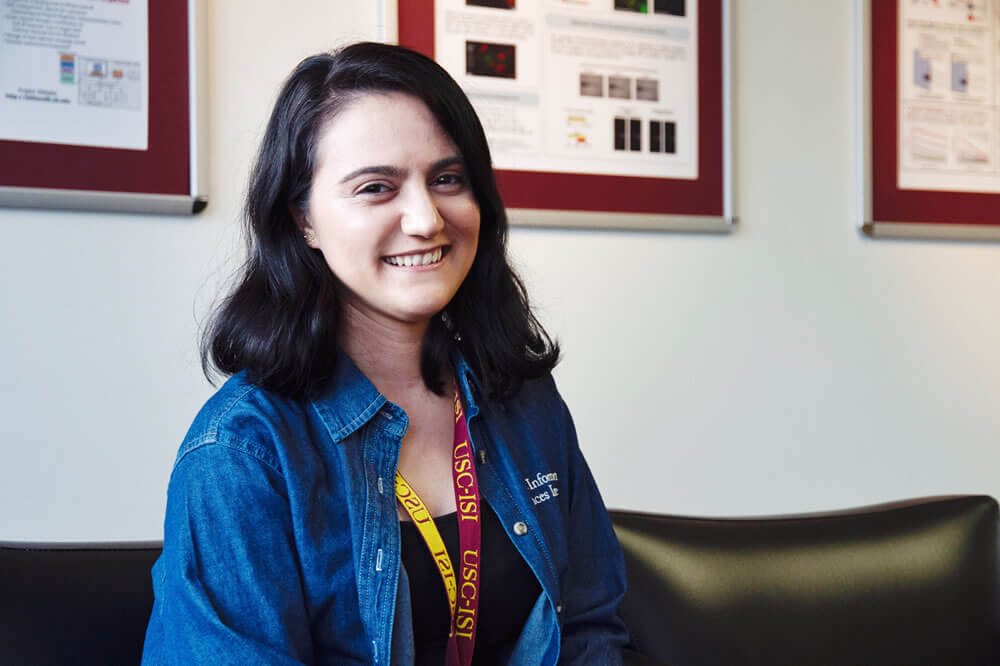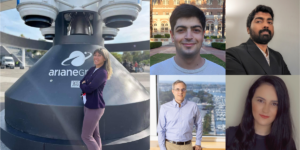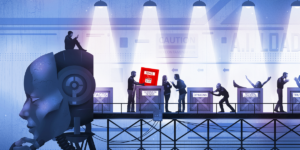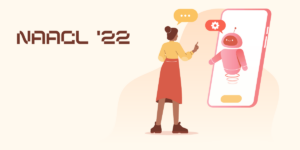
Ninareh Mehrabi
When it comes to advanced degrees such as Ph.D. programs, there are many different tracks and research options. Some students choose on-campus teaching and research roles, while some focus on publishing papers. We talked with Ninareh Mehrabi, who initially planned to take the traditional Ph.D. track, but later joined ISI to advance her path in academic research.
Could you tell me about your current project at ISI?
Since May 2018, I have been working on a project named “Understanding Group Biases,” trying to better identify different cultural groups and understand their values. The data could be from any source—we used a Twitter dataset, but now we are also working on Yelp and Reddit datasets. Basically, we are trying to build a cultural model by using machine learning.
This has great potential for real-world applications. In fact, our model can benefit under-represented communities such as refugees or minorities by better understanding their concerns and values. Interestingly, when I joined ISI for this project, I wasn’t a Ph.D. student yet— I was only at ISI for the summer, but the professor invited me to stay at ISI working on a project. And I did! This turned out to be a great opportunity for me.
We are so glad to hear that! Why did you decide to join ISI? What was your motivation back then?
After my summer research was finished at ISI, my plan was to go back to the research track as an on-campus Ph.D. student. But, as I got more involved with the research work here at ISI, I learned that the projects were funded by much larger agencies like DARPA or IARPA. I felt this could be much more challenging and rewarding for me.
I learned a lot from the researchers I work with here at ISI—they are so knowledgeable in their fields. In fact, they’re some of the best in their fields. And there is no shame asking them any question, even for basic concepts. At first, I thought it might be easier to do research with my friends or similar-level students, but it turns out, the researchers at ISI are just like my friends. They are so knowledgeable, but the way they present themselves doesn’t make you feel intimidated at all. I feel really comfortable working here.
Also, the environment here is super fun—people are so supportive, and it is so diverse compared to other mostly male-dominant workplaces. Here, I can be working on the research I like, while also having a social life.
As someone coming straight from a computer science undergraduate degree, has it been challenging to combine computer science with other fields like social science and political science?
When I first started, I was always like, “Oh, humans are so complicated!” But through working on this project, I got the chance to work with different people, like social scientists, machine learning experts and data scientists. I learned a lot from our meetings together and this has been a truly rewarding experience for me.
Seems like you do have great passion for this topic. And you recently won an award for this project?
Yes, it was the ISI Graduate Student Symposium 2019 award. I won the award for the best poster for the “Debiasing Community Detection: The Importance of Lowly Connected Nodes” work we submitted.
This was my first Ph.D. award and I was so excited. I hope I can continue to top this award and continue to obtain more progress for our research, but I am happy for myself.
Congratulations! OK, we’ve covered a lot about your research here at ISI, but could you share with us your other interests, besides researching and studying?
I love helping others and doing volunteer work. I have volunteered for the USC Joint Educational Project which was a weekly program at USC. We used to go to the elementary schools in underprivileged communities to teach computer science and show them that computer science is interesting! I also did other volunteer work at YWCA and Catholic Charities.
I was lucky when I was growing up in Iran to be exposed to advanced math quite early on and I was able to participate in robotic competitions for teenagers , where I learned the beauty of computer programming. I knew what I was interested in at a pretty early age. The students at the schools I volunteer at do not have this access. So, I want to help.
Published on August 29th, 2019
Last updated on May 17th, 2021













